Space
-
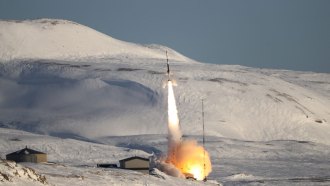 Planetary Science
Planetary ScienceScientists find a long-sought electric field in Earth’s atmosphere
The Earth’s ambipolar electric field is weak but strong enough to control the shape and evolution of the upper atmosphere.
-
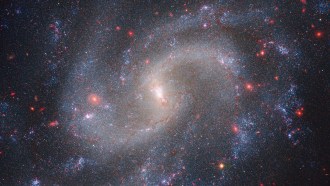 Cosmology
CosmologyIn an epic cosmology clash, rival scientists begin to find common ground
Different measurements of the cosmic expansion rate disagree. The James Webb telescope could determine whether that disagreement is real.
-
 Space
Space2 spacecraft caught the waves that might heat and accelerate the solar wind
Data from NASA’s Parker Solar Probe and ESA’s Solar Orbiter might have cracked an enduring solar riddle. But not everyone yet agrees.
By Adam Mann -
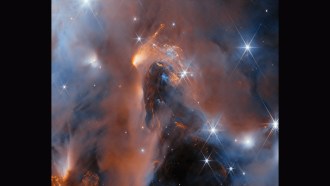 Planetary Science
Planetary ScienceThe Webb telescope’s peek into a stellar nursery finds baby planets too
Images by the James Webb telescope of six Jupiter-sized worlds, one of which may have a moon-forming disk, reveal clues into how planets and stars form.
By Adam Mann -
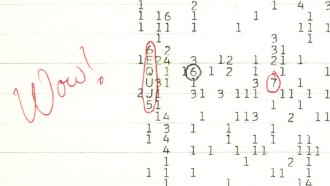 Space
SpaceThe historic ‘Wow!’ signal may finally have a source. Sorry, it’s not aliens
One of the best possible signs of extraterrestrial communication may have an astrophysical explanation — albeit a weird one.
-
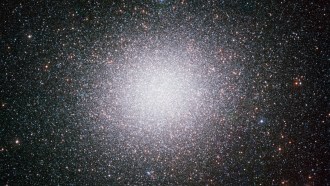 Astronomy
AstronomyThe nearest midsized black hole might instead be a horde of lightweights
Astronomers recently reported that the Milky Way star cluster Omega Centauri hosts an elusive type of black hole. A new study says it does not.
By Ken Croswell -
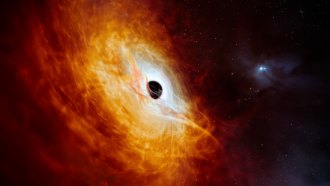 Astronomy
AstronomyA distant quasar may be zapping all galaxies around itself
Star formation has ceased within at least 16 million light-years of the quasar. A similar phenomenon may have fried the Milky Way when it was young.
By Ken Croswell -
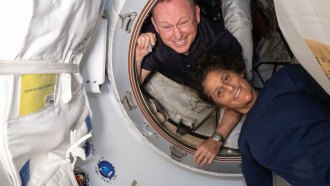 Space
SpaceAstronauts actually get stuck in space all the time
Butch Wilmore and Sunita Williams join more than a dozen astronauts who’ve been stranded in space by mechanics, weather or geopolitics since the 1970s.
-
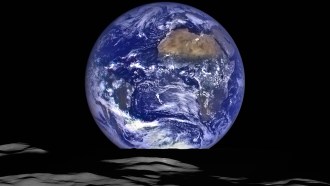 Space
SpaceScientists want to send endangered species’ cells to the moon
Climate change is threatening Earth’s biodiversity banks. It might be time to build a backup on the moon.
-
 Astronomy
AstronomySome meteors leave trails lasting up to an hour. Now we may know why
A new survey of meteors that leave persistent trails found that speed and brightness don’t matter as much as atmospheric chemistry.
-
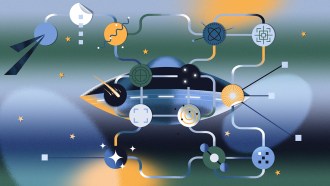 Space
SpaceScientists are getting serious about UFOs. Here’s why
UFOs have been rebranded as UAPs (unidentified anomalous phenomena). Probably not aliens, they might impact national security and aircraft safety.
By Sid Perkins -
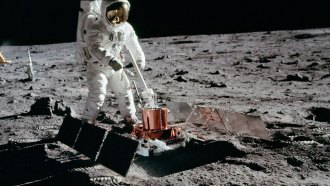 Space
SpaceMoonquakes are much more common than thought, Apollo data suggest
The discovery of 22,000 previously unseen moonquakes, plus a new idea of what causes them, could help us better prepare for trips there.